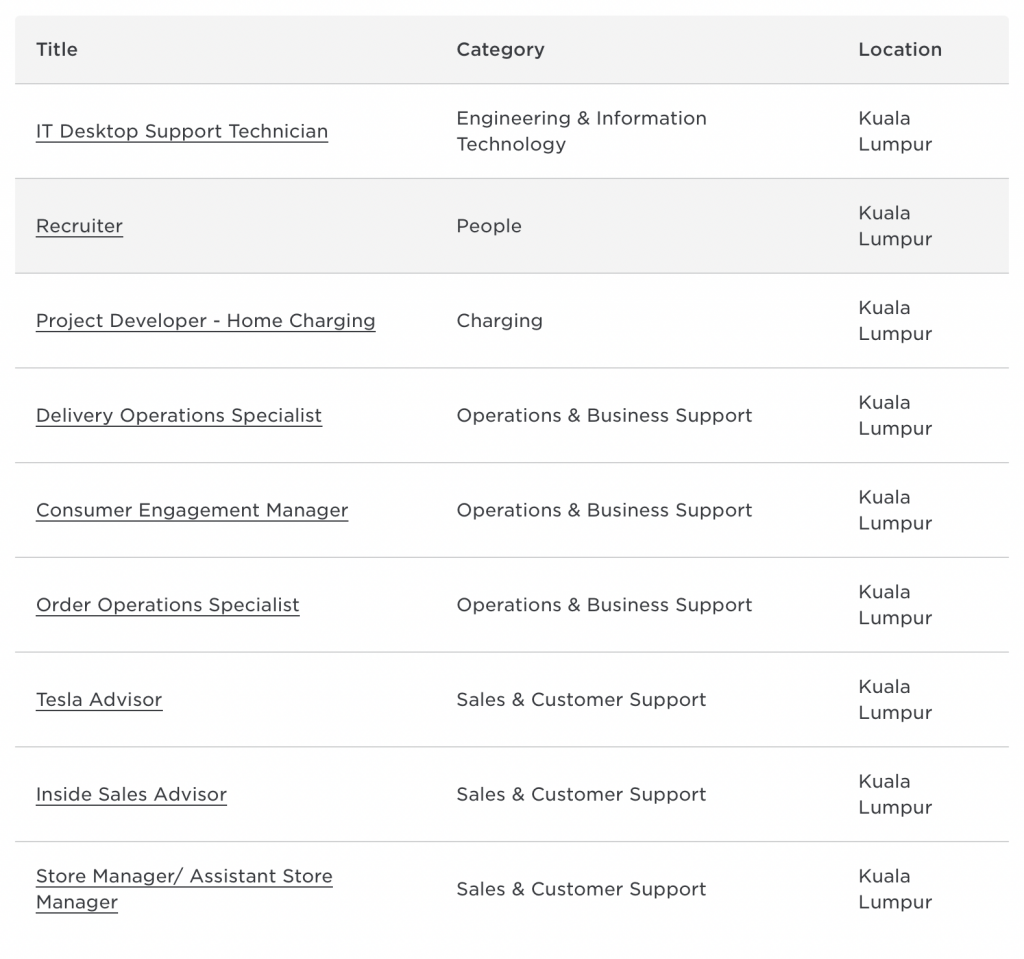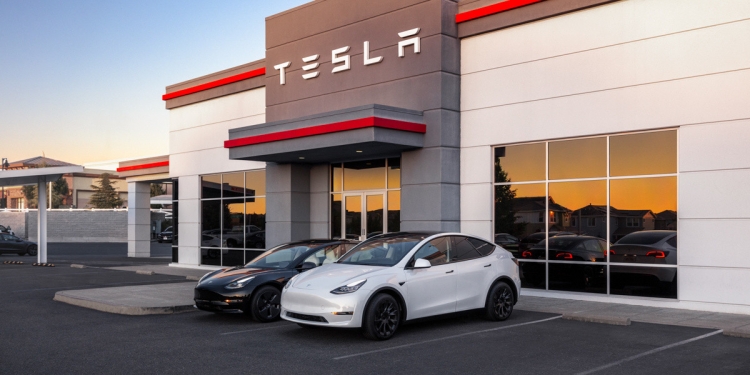It looks like Tesla is working swiftly on its Malaysian expansion since the Ministry of International Trade and Industry (MITI) approved its application to import its vehicles to Malaysia. The company’s global careers page lists several postings for jobs in Kuala Lumpur in anticipation of a local launch.
The pre-eminent electric vehicle maker currently has nine openings in a wide variety of fields, including a desktop support technician for its IT department, a project developer for its home charging products and even a recruiter. It’s also hiring people to head up its retail operations, such as sales advisors, a store manager and assistant store manager, an order operations specialist, “consumer engagement” (read: marketing) managers and a vehicle delivery operations specialist.

All this points to the company entering the Malaysian market in a big way with the setting up of showrooms and service centres; a similar hiring spree preceded the company’s Singaporean launch. It did, however, take seven months from the first sighting of those jobs to the company actually selling vehicles down south, so you’ll probably still have to wait a while to get a Tesla through official channels.
Earlier, MITI announced that Tesla intended to set up a head office, Tesla Experience stores and service centres and a Supercharger network of fast chargers, although there were no job postings related to the latter. This followed the company changing the name of its Malaysian subsidiary, which previously operated a Finance Shared Service Center in Penang, to Tesla Sdn Bhd—dropping the “Services” part of its name.
According to MITI minister Tengku Zafrul Aziz, Tesla is the first applicant of the ministry’s Battery Electric Vehicle (BEV) Global Leaders initiative, aimed at boosting the local demand of EVs. This may grant concessions for certain requirements, such as franchise approved permits (APs) for importing vehicles, per paultan.org. The company will have to work quickly to introduce its vehicles in Malaysia, as the import tax and excise duty exemptions for fully-imported (CBU) EVs are set to end after 2025.








